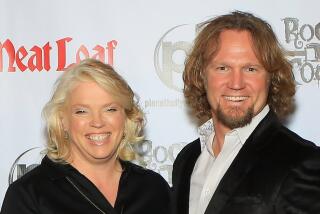With ‘X-Men: Apocalypse’ and ‘Game of Thrones,’ Sophie Turner is coming into her own
Sophie Turner is due for some apocalyptic developments. At the tender age of 13, Turner booked her first big gig in HBO’s “Game of Thrones.” She was cast as Sansa Stark, the oldest daughter of the noble Stark household; a red-headed beauty with wide-eyed plans for the future.
Sadly, her wide-eyed optimism wouldn’t last. By the end of the first season her father was decapitated. As “Game of Thrones” played out Sansa would be shackled to not one but two of the biggest sadists in all of Westeros. The character would be raped, slashed and humiliated. The abuse would get so bad that in 2015 a great wave of think pieces rose up, demanding the return of some sort of agency for the fictional teenager.
But seven years and six seasons later, the power dynamic has shifted for Turner in more ways than one.
She may have started on “Game of Thrones” as the little dove but today she’s transformed into a wolf, on both the small and the big screen. This weekend the actress will continue to (in her own words) “prove the haters wrong” on HBO while simultaneously starring in her first sizable movie role in “X-Men: Apocalypse.”
And this isn’t just any old spandex and cape part, Turner is playing what many consider to be the most powerful mutant in all of Marvel, the telepathic, telekinetic Jean Grey, whose gifts surpass those of even her mentor, Charles Xavier (James McAvoy). In the Marvel comics, Jean’s powers eventually consume her, turning her into the formidable Dark Phoenix.
This mutant has been portrayed previously several times in the “X-Men” franchise by actress Famke Janssen, but despite the character’s long legacy in this mutant world, Turner will be revealing a side of Grey in “X-Men: Apocalypse” audiences haven’t seen before. “In the first three movies, Jean is a full-fledged human being,” Turner explained in an interview with the Los Angeles Times. “She has her [stuff] together. She has her life planned out. She can kind of control her powers until it gets too ‘Dark Phoenix’ and weird. But this Jean is different. She’s very vulnerable. She has no idea how to control her powers. She’s too strong for her own good.”
The English actress was first made aware of 1980s mutant period piece thanks to a modern convenience: social media. Once word broke that Fox studios was looking for a younger version of Grey to fit in with the prequel timeline set up in Matthew Vaughn’s “X-Men: First Class,” Turner’s inbox was flooded with “you’d-be-perfect-for-this-role” type emails and twitter shout-outs. Turner humbly blames her auburn hair for the attention, but nevertheless the push from “Game of Thrones” fans and friends encouraged her to reach out for an audition that would land her a coveted spot on Xavier’s class roster. Also enrolled in the new class of teen mutants were Cyclops (Tye Sheridan) and Nightcrawler (Kodi Smit-McPhee).
“We definitely were the newbies, but I personally didn’t feel that new because we slotted in quite well with the golden oldies,” Turner said referencing those “X-Men” veterans including Magneto (Michael Fassbender), Mystique (Jennifer Lawrence) and Beast (Nicholas Hoult). “They really welcomed us, we felt part of the old gang. I suppose ‘Apocalypse’ is something of a conclusion to the X-Men saga,[but] it’s also the beginning of something new. It feels like there’s something of a rebirth as well as a conclusion.”
Despite the serious circumstances surrounding the plot, centering the story in the time of fanny packs and shoulder pads did lend a few moments for a little fun. So how does an actor transform into a child of the Day-Glo era? You start with the hair. “We just had to really elevate it a bit,” Turner said. “I think the reference was Brooke Shields-y. And a lot of hair spray. The shoulder pads, the acid washed mom jeans. What shoes did I have? They were kind of like boat shoes, I don’t know, they were just hugely uncomfortable.”
All that ‘80s nostalgia — somewhat lost on an actress born in 1996 — was silly enough, but the ridiculousness was taken to another level by the fact that most of Turner’s filming was spent running around gesturing wildly while wielding invisible mutant powers that would be added in months later via visual effects. “You do kind of feel like an idiot,” Turner joked. “Because you just have to maybe like squint your eyes a bit and hope the people realize that you’re actually doing something.” Thankfully, McAvoy -- a temple-pointing-and-squinting expert -- was on set to offer telekinesis tips.
But the bulk of “X-Men: Apocalypse” was centered on the title dilemma, the end of the world. And Turner’s character plays an integral role in saving the planet from an ancient, villainous mutant (Oscar Isaac) hell bent on the kinds of things villains are hell bent on. It’s an easy parallel to make with what Turner is grappling with in the entirely different fantasy world of “Game of Thrones.”
“They’re both kind of coming into their own,” Turner said. “I think that Jean’s is less of a progression, she’s not working towards it. When Phoenix happens it’s her letting loose -- she’s not building up to it. It just kind of happens. Whereas Sansa’s [evolution is] because of her circumstances. It’s been building her and building her and building her and each time someone chips away at her, she builds herself up again differently. She is very consciously changing and adapting where, Jean it’s less of a conscious thing.”
Despite playing characters with an unwieldy amount of mutant mojo or an army of wildlings at her disposal, it’s not actually the power that attracts Turner to parts like Jean Grey or Sansa Stark, it’s the struggle. “I prefer playing someone who’s flawed,” Turner admitted. “I can’t relate to Phoenix in the slightest. I wish I could, that would be nice.”
Whether discussing “X-Men” or “Game of Thrones” Turner doesn’t relish in the glory moments for either character, instead she chooses to focus the emotional dilemma. Just recently on “Game of Thrones” Sansa was finally able to speak her truth about all the wretched moments she’s had to live through. To Turner that scene was more about the emotional impact than the character comeuppance. “It was kind of a moment where she’s voicing what everyone else is wanting her to say. [It’s] finally happening for her. It was a big thing for me because it was the first time that she’s really stood on her own and been true to herself and been unafraid to say what she wants and say what she means.
“She’s sick of being a pawn in everyone else’s game,” Turner continued. “And finally she’s playing the game.”
MORE:
‘Game of Thrones’: Sophie Turner talks facing Littlefinger and putting the ball in Sansa’s court
Oscar Isaac gets his supervillain on for ‘X-Men: Apocalypse’
What exactly does the sound and fury of Bryan Singer’s ‘X-Men: Apocalypse’ signify?
The cast of ‘Outlander’ brings added dimension to fantasy series
More to Read
The biggest entertainment stories
Get our big stories about Hollywood, film, television, music, arts, culture and more right in your inbox as soon as they publish.
You may occasionally receive promotional content from the Los Angeles Times.











